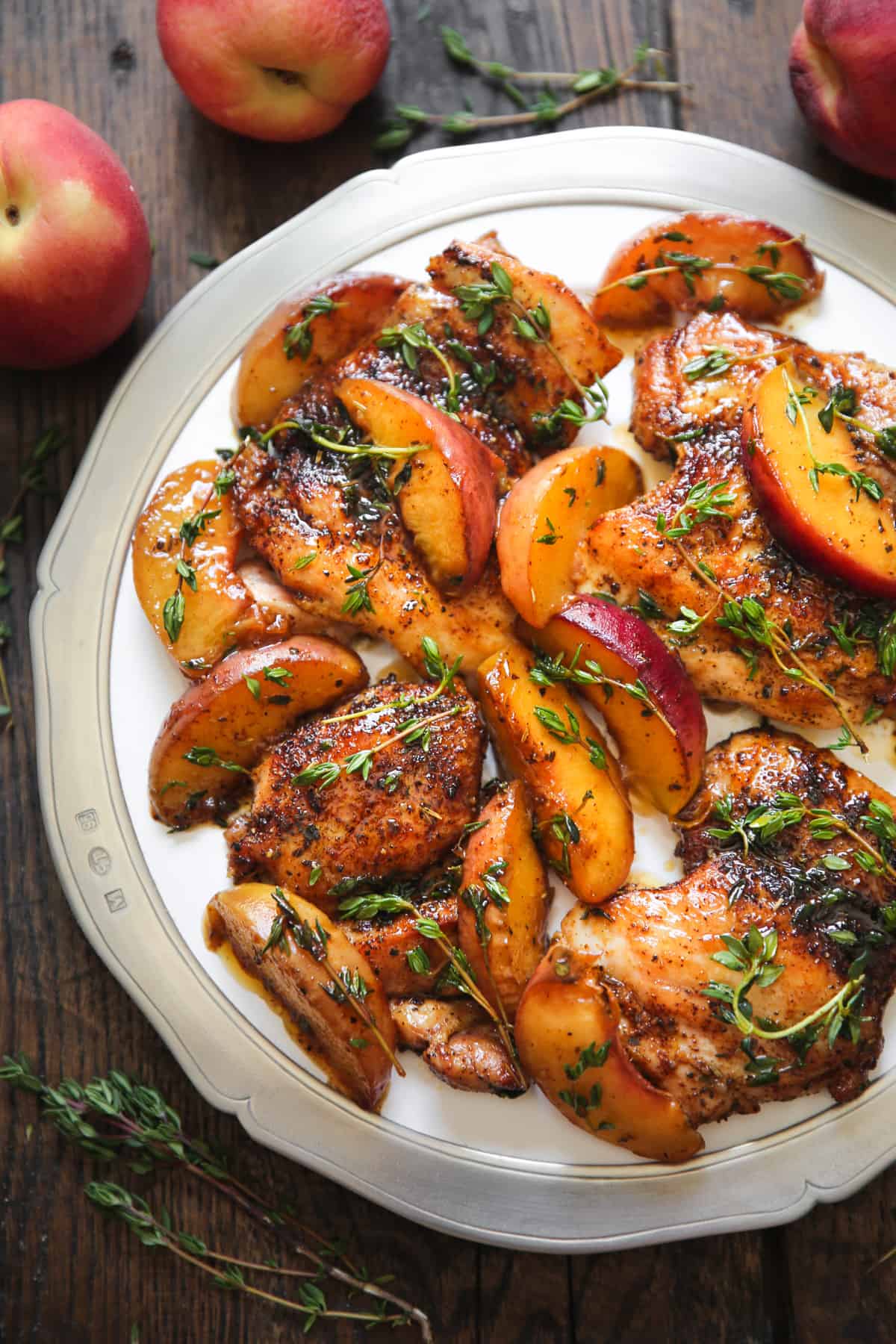It’s summertime! The time of year when summer fruits are ripe, available, least expensive, and most delicious. And often, they are locally grown and bursting with flavor and nutrition.
A diet rich in fruits (and vegetables) provides a multitude of health benefits.
Berries
Fiber-rich, nutrient-dense, and full of antioxidants, berries are a sweet summer treat bursting with health benefits. They contain antioxidants like polyphenols and anthocyanins that counteract, reduce, and repair damage to cells – thought to have anti-inflammatory and cancer-prevention effects. Also, they are an excellent source of fiber, vitamin C, and potassium.
Fresh US-grown blueberries are available across the country from April through October. When ripe, they should be firm, plump, and dry with a dusty blue color. Blueberries stay fresh in the refrigerator for 10 to 14 days.
In the United States, blackberry season typically peaks in June in the south and July in the north. Choose shiny berries that aren’t bruised or leaking. Blackberries will remain fresh three to six days in the refrigerator. Wash just before using.
The natural growing season for strawberries in most of the country is April through June. Strawberries should be shiny with a bright red color and intact green caps. They can be stored in the refrigerator for one to three days and shouldn’t be washed until right before they’re consumed.
Raspberries are ready to harvest in July, August, and sometimes into September each year depending on your growing area. Choose plump, firm berries. Even refrigerated, raspberries are best if used in one or two days and shouldn’t be washed until ready to eat.
Cherries
The dark, rich color of sweet red cherries reflects their high levels of anthocyanin pigments and phenolic compounds and all the health benefits that go along with them. They are a good source of vitamin C and have a good amount of satiating fiber. They are very sweet for the number of calories they contain. There are only 50 calories in 10 good-sized cherries and almost 2 g of fiber.
Here in the US, cherries are in season from May through July, which means you’ll enjoy the most flavorful fruit when you buy them in late spring and summer. Choose firm red cherries with stems attached. Sweet cherries can be stored in the refrigerator for up to 10 days. They can be frozen for later use with the pits removed.
Peaches and Nectarines
Peaches and nectarines are good sources of vitamin C, dietary fiber, vitamin A, potassium, and niacin. Orange fruits and vegetables are loaded with beta-carotene, an antioxidant thought to protect cell membranes from damage. Fruits like peaches and nectarines make a great snack because they’re easy to portion control and they only have 50 to 70 kcal calories in one whole fruit.
August is National Peach Month. The average peach tree can produce more than 50 pounds of peaches in a season! It takes a peach about 4-5 months to mature and ripen. Peaches are harvested from the end of June until the end of August.
Watermelon
Watermelon is the quintessential summer fruit. It is an excellent source of vitamin C and a very good source of vitamin A. For a fruit, watermelon is a good source of iron. But it’s the carotenoid phytochemicals, such as lycopene, that make watermelon stand out. Diets high in carotenoid-rich fruits (and vegetables) are associated with reduced risk of heart disease and some cancers.
Watermelon grows across the southern United States and in the northeast. Peak watermelon season is August. Choose symmetrical melons that are heavy for their size (yellowish undersides are normal). Store whole watermelons at room temperature and refrigerate cut watermelon in an airtight container for up to five days.
Tips for incorporating summer fruits into your diets:
- Include fruits (and vegetables) in every meal.
- Keep a fruit bowl in the kitchen.
- Toss fruit onto oatmeal or dry cereal.
- Make whole fruit smoothies. (Don’t forget to add protein such as plain Greek yogurt).
- When preparing dessert, make it fruit-based, such as a fruit salad or fruit crisp.
- Slice fruits into salads.
- Place peeled, sliced fresh fruit in the freezer. Put the frozen fruit in a blender with a splash of lemon juice and a little spice to make a sorbet.
- Grill fruits such as pineapple and peaches. Grilling softens the fruit and gives it a more complex flavor, making it an ideal accompaniment to meats.
- Use chopped peaches or watermelon for salsa.
For a simple delicious dinner featuring fruit, check out this recipe for Chicken with Peaches – 30-minute one pan meal. Enjoy!
Lorraine Matthews-Antosiewicz, MS, RD
PS –
Summer is the perfect time to re-focus on taking care of yourself. Let’s talk about how we can work together so you can improve your health and fitness, achieve your personal best weight, and maintain it with ease. NO MORE DIETING.
Message me or call 732-494-1149. Let’s start with a conversation.
Meanwhile, be grateful, patient, and nice, stay hydrated, treat yourself and others with kindness, move more, and eat your veggies!



